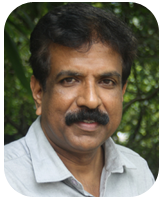
Community Botanical/ Herbal Gardens for assisting nature
Editorial
This inaugural issue of the MSSBG Newsletter brings out 9 stories/news under four thematic areas -i) Science & Traditional Knowledge; (ii) Conservation of Biodiversity; (iii) Health and Food; and (iv) People and Culture that are advocated by the UN for observing the IDB 2020. The need for integrating these four areas is considered to derive actions that can change the perceptions and behavior of the people to live in the post-COVID world. Most of the actions described are already taking place on a pilot basis, but to be continued with a renewed focus and to be replicated to cover new areas. For example, the plan described under the Health and Food was started with an intensive study on wild food of the Wayanad region and synergized with conservation, science, culture and traditional knowledge of such resource. This activity has been proposed towards achieving the goal of ending preventable infectious diseases and eradicating malnutrition by 2030 (SDG3 & SDG 2) through sustainable and effective use of medicinal plants and wild foods.
The Garden is engaged in integrated conservation and enhancement of such community biodiversity by promoting sustainable management of the Socio-Ecological Production Landscapes (SEPLS). SEPLS, including the land of commons, are traditionally rich in biodiversity sites function as the spaces for the local community to produce goods and services that meet their livelihoods, food, health, and material, cultural, and recreational needs. The industrial enterprises also compete for this space for commercial production and sourcing raw materials for businesses. As a result, and due to the threats from changing climate and land uses, SEPLS across the world experience a high rate of degradation and destruction of biodiversity, water sources and soil health. Restoration of such landscapes with native biodiversity and enhancement of natural resources along with greening of businesses should be a high priority agenda in development.
Prof. Swaminathan once famously said “A greening of the human mind must precede the greening of our Earth. A green mind is one that cares, saves, and shares. These are qualities essential for conserving biological diversity now and forever”. Unfortunately, such minds are becoming very rare especially in the leadership front in India. The larger purpose of this Newsletter is to green the human minds for achieving the Mission of Saving Biodiversity of the production areas in the global biodiversity hotspot of Western Ghats. MSSRF has a strong history of co-creation of knowledge and working in partnership with government, local communities, academic institutions, and private enterprises. We look forward to continue strengthening this partnership.
On behalf of MSSRF, I invite you to join our Mission to Save Biodiversity of the Socio-Economic Production Landscapes of the Western Ghats.
N. Anil Kumar
Director, MSSBG
International Day for Biodiversity, 2020
